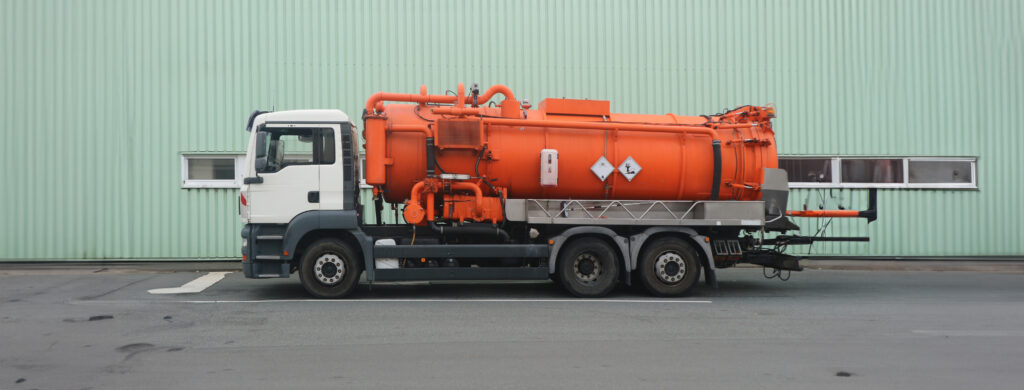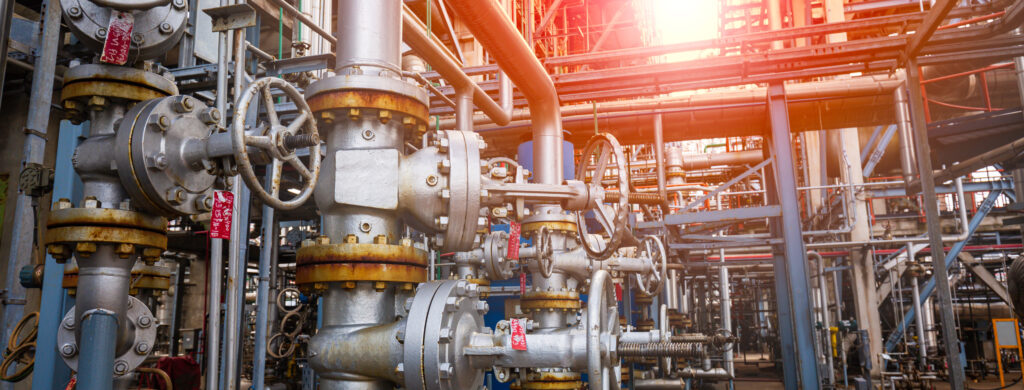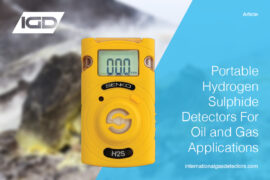Benzene is an extremely valuable precursor chemical used in various manufacturing activities–but it remains a highly hazardous compound. It is a colorless, or light yellow, liquid at room temperature, but will rapidly evaporate into the air under the right conditions. Exposure to benzene causes cellular dysfunctions that can cause serious long-term health issues.
Very high-level exposure to benzene, even for a short period, can be fatal. Given that benzene ranks among the top 20 chemicals by production volume, and its ubiquity in modern products, benzene detection and analysis is a critical task in a host of industries.
This blog post will look at five applications where benzene detection is essential.
Arson Investigation
Benzene is a volatile organic compound (VOC) and a highly flammable substance because of how dangerously it reacts with oxidants and halogens. Because benzene is a residual component in gasoline and other petroleum-based products, benzene detection instruments are often used during arson investigations to see if an accelerant was used to start a fire.

Emergency responders must be able to detect benzene for the safety of themselves and others. Regarding arson detection, a portable benzene detector is an ideal solution because it can easily be carried on a person without any problems. They are lightweight, easy to use, and can detect benzene down to 0.5 and up to 200 parts per million.
Hazardous Waste Disposal
There are a plethora of different substances in the workplace that can be hazardous to human health, such as solvents, disinfectants and pesticides. This waste can emit a wide variety of different gasses including Benzene. Benzene typically comes from waste containing crude oil, such as bitumen and plastic, and any areas managing this waste need to implement the correct detection to mitigate the hazards of these gasses. The NEO Benzene detector is ideal for this usage, providing a high level of accuracy and easy integration into any Benzene application.

Oil and Gas Refineries
Benzene is present throughout the production and processing of gas and oil, exposing workers such as lab personnel, mechanics, and technicians. In an oil refinery, crude oil is broken down by heating methods and transported to businesses needing it. As many different people could come into contact with benzene in oil and gas refineries, benzene detectors are vital.

Petrochemical and Chemical Plants
Once substances such as crude oil and gas have been refined, petrochemical plants turn them into secondary products that can be used in various applications. The industrial and consumer products produced in petrochemical plants include gases, plastic, rubber and more. These are then used to manufacture a vast range of products that are used daily. As Benzene is a key component of crude oil, the process of creating these base materials can lead to large Benzene gas emissions. Thus, a benzene detector must be employed.

Wastewater Plants
Because benzene is used in multiple processes, especially the ones mentioned in this blog, it is common for it to be present in wastewater known as effluent. This impact is extremely harmful to humans and the environment, so benzene must be removed from wastewater before it is discharged. Once detected, there are several methods of treatment for benzene in wastewater.

Benzene Detection with IGD
International Gas Detectors has over twenty years of experience in gas and VOC detection. Our NEO portable benzene gas detector is one of the most advanced portable benzene detectors on the market and is the perfect solution for various applications. The key features of our NEO detector are that it’s small, lightweight, and has a 24-hour continuous run-time. Additionally, it has USB and Bluetooth connectivity options, numerous alerts and alarms, and a 3-second response time.

Contact our team today for more information on our benzene detectors and how they can support your monitoring applications.




